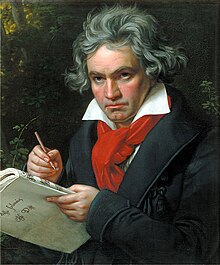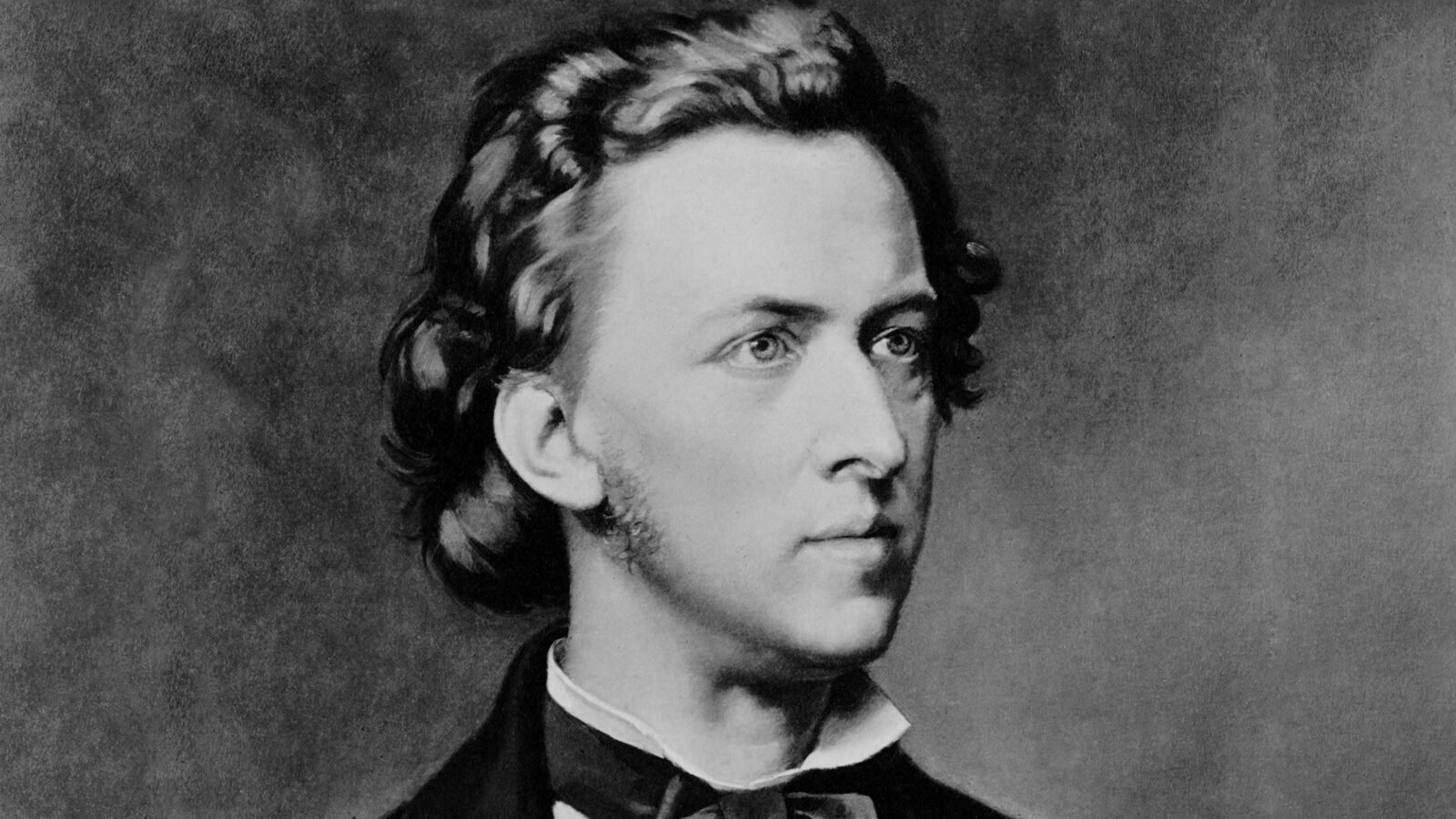Over the years that I've been playing piano, I've played pieces from all four time periods of music (Baroque, Classical, Romantic, and Contemporary), each of which has different characteristics and rules that go along with it. In order to play the piece in the proper style, you have to know when it was written. The periods of music often go along with the different art and literary movements; sometimes they're even ahead of their time.
Anyway, since we've transitioned from Kant's "What Is the Enlightenment?" to Dostoevsky's Notes from Underground, which refutes the ideas of the Enlightenment, I thought I would share some of the differences between Classical music (which spanned the late 17th and most of the 18th centuries) and Romantic music (which began in the late 18th century and ended around the turn of the 20th century).
Classical music, which accompanied the Enlightenment movement, is pretty strict and based on musical rules. If a piece is written a certain way, as the pianist, you're obligated to follow all of the tempo and time signature directions the composer gives. In addition, Classical musicians created many new forms of piano pieces that had to written in a certain style. For example, the sonata, which became popular in the Classical period, had a very specific structure composers had to follow in order for their piece to be considered a proper sonata. Classical music matches up with the Rationalist and scientific-based Enlightenment era.
 |
| Ludvig van Beethoven (1770-1827) |
Around the late 18th century, musicians (with Beethoven as a major bridge figure) began to transition into a new period and style of music, Romanticism. Romantic music had far fewer rules than Classical music. Composers took more liberties with their music, abandoning many of the guidelines of the past and creating a whole new feel to music. For example, Classical-era waltzes had strict tempo and format restrictions, but the waltzes of Chopin, a major Romantic composer, take many liberties in regards to tempo and other stylistic choices. In short, along with the literary figures of the Romantic era, such as Dostoevsky, composers wished to create their own music, drawing more on their emotions and less on the rules of the past.
 |
| Frederic Chopin (1810-1839) |


3 comments:
During Romanticism, as Lainey has researched, music developed as did many other creative outlets, especially literature, of course. Specifically, in commenting on one of the composers Lainey wrote about, it is important to note that Frederic Chopin, while born in Poland, died in Paris, France. He made his way to France as an artist and a genius musician. This relates, like many other ideas, to Dostoevsky's "Notes from Underground," for the Underground Man associates the French with a sort of Romanticism that is doused in emotion. This emotion, of course, comes through music, especially that of Chopin. I was introduced to his work Sophomore year, after reading "The Awakening" in which his work is showcased as a driving force in the novel. The composition in that novel is Prelude in E minor (op. 28; no. 4). It's beautiful and my favorite classical piece, so check it out if you'd like! You can definitely feel the emotional effects of the piece while listening. It's intense in the best way possible and proof that French Romanticism was emotional and therefore different from the Russian view of Romanticism. This, Dostoevsky notes through his main character.
I took piano lessons and competed in recitals throughout lower and middle school and played a variety of pieces from different eras. I remember playing a sonata and some other popular form from a different era (but I forgot the name). I definitely noticed the difference in structure and style but obviously never considered the historical reasons behind the differences. Reading your article, it kind of helped me connect the dots with why the pieces I played sounded the way it did.
On another note, my mom really wants me to take lessons again from the organist at my church this summer so perhaps I can retrieve my piano abilities.
I forgot to note—the source was stuff I’ve learned over the years from my piano teacher, Mrs. Fransen, not the Internet! Otherwise, I would’ve included the URL.
Anyways, Gabby, if you liked Chopin’s “Prelude in E minor,” I think you’d love his “Prelude in B minor” as well! Personally, I also love his waltzes in B minor and C sharp minor and his nocturne in E flat major. If you couldn’t tell already, Chopin is my FAVORITE composer of all time!
And Samuel...definitely try out piano again!
Post a Comment